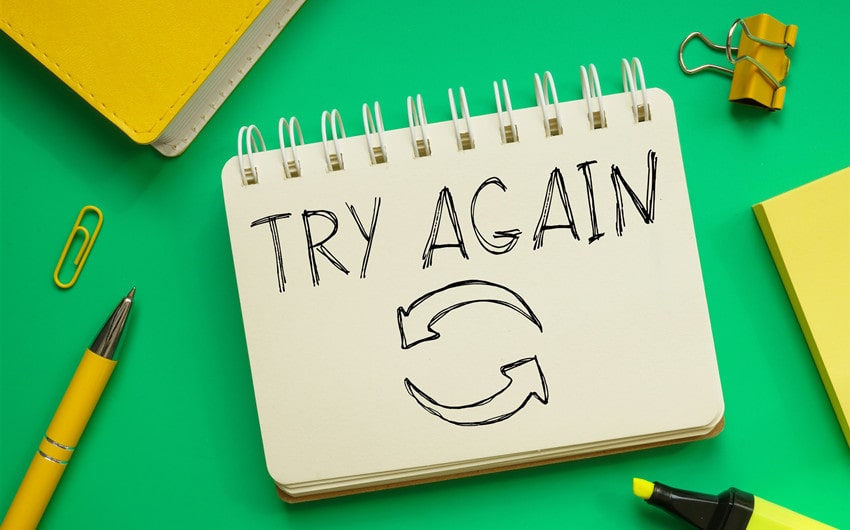When Balance Breaks: How to Begin Again Gracefully
No matter how carefully we build our routines, balance has a way of slipping through our fingers. One unexpected change, one heavy week, one emotional wave — and suddenly, what once felt steady feels far away.
It’s easy to see these moments as failure. To believe that balance was something we lost, and we have to start from scratch to get it back. But what if imbalance isn’t the end? What if it’s simply part of the rhythm — an invitation to begin again, more gently this time?
Balance isn’t about staying perfectly centered. It’s about learning how to return.
The Myth of Permanent Balance
We tend to treat balance like a goal we can reach and hold — a final, fixed state where everything aligns. But life doesn’t work like that.
Seasons change. Priorities shift. Energy rises and falls. Some weeks are full and joyful, others are heavy and still. Balance can’t stay still when life keeps moving.
Trying to freeze it in place only creates pressure. Real balance lives in motion — it bends, adjusts, and evolves with you.
When things fall apart, it’s not proof that you’ve failed. It’s a reminder that balance isn’t something you keep. It’s something you practice.
The Gentle Truth About Imbalance
Everyone loses balance sometimes. You skip the habits that ground you. You overcommit. You forget to rest. You feel stretched between too many roles.
That’s not weakness — it’s being human.
Imbalance shows up when something inside or around you needs attention. It’s your body and heart saying, Something isn’t working right now. Let’s adjust.
If you can see imbalance not as punishment but as guidance, it becomes softer. It stops being a source of shame and becomes a teacher instead.
Listening to the Message
When balance breaks, instead of rushing to fix it, try listening.
Ask yourself gently: What is this imbalance trying to tell me?
Maybe you’ve been saying yes when you meant no. Maybe your body is asking for more rest. Maybe something that once fit your life no longer does.
Every imbalance holds information — about your needs, your limits, your boundaries, your next steps.
Listening is how you begin to realign.
The Pause Before the Rebuild
When we notice imbalance, our instinct is often to fix it quickly — to find a new plan, a better system, a way to “get back on track.” But rushing to restore control can sometimes make things worse.
Before you rebuild, pause.
Take a breath and give yourself permission to stop forcing things back into place. Let the dust settle first.
The pause is where clarity returns. It’s where you stop reacting and start understanding what kind of balance you actually need in this season.
Grace Over Guilt
When you fall out of balance, guilt can arrive fast — the belief that you should have managed better, seen it coming, stayed stronger.
But guilt doesn’t help you move forward. Grace does.
You don’t owe the world constant steadiness. You owe yourself honesty and care.
Maybe this is your reminder that you were never meant to hold everything perfectly. Maybe balance breaking is how you learn to hold yourself more gently instead.
Grace sounds like:
“It’s okay that this feels hard.”
“I’m allowed to rest.”
“I’m still doing my best.”
Let those words be the new foundation for your return.
The Cycle of Return
Balance isn’t lost forever when it breaks — it’s simply asking to be redefined.
There’s a cycle that repeats again and again in life: noticing, releasing, returning.
You notice what’s not working. You release what’s heavy or no longer fits. You return to yourself — slower, clearer, softer.
Each return brings wisdom. You learn your limits, your patterns, your capacity. You start to rebuild balance in a way that feels more like home.
The next time imbalance comes — and it will — you won’t fear it as much. You’ll recognize it as part of the rhythm.
Practical Ways to Begin Again
When life feels off-center, balance doesn’t have to be rebuilt all at once. Start small. Return slowly.
Here are a few gentle steps to help you begin again:
1. Breathe before you plan.
Before making new commitments or lists, take three slow breaths. Let your body settle first — planning is clearer from calm.
2. Ask what matters most right now.
Balance isn’t doing everything — it’s prioritizing what’s most meaningful in this season. Simplify. Choose less.
3. Reconnect with your body.
Stretch. Walk. Rest. Eat slowly. Movement and stillness both ground you back into presence.
4. Rebuild routines softly.
Instead of diving back into structure, add one grounding habit at a time — maybe a short morning pause or early bedtime. Consistency grows from compassion, not pressure.
5. Forgive yourself often.
There is no “perfect comeback.” You’re allowed to rebuild unevenly. Progress is still progress, even if it’s gentle.
When Balance Looks Different
Sometimes balance doesn’t look peaceful. It looks like doing your best while holding uncertainty. It looks like showing up tired but still trying.
Balance isn’t always pretty. It’s not candles and calm mornings every day. Sometimes it’s messy — a mix of chaos and courage.
And that’s okay.
You’re allowed to have days that don’t match your ideal of balance. You’re allowed to be in transition and still be proud of yourself for continuing.
Graceful beginnings are rarely perfect ones.
Relearning the Middle
When you’ve been living at the edges — all hustle or all rest, all giving or all withdrawal — finding the middle again can feel foreign.
But the middle isn’t bland; it’s peaceful. It’s where things feel breathable again.
Coming back to balance doesn’t mean erasing extremes; it means learning to move between them without losing yourself.
Start by asking: What does the middle feel like for me today? Maybe it’s a walk. Maybe it’s saying no. Maybe it’s simply allowing yourself to be enough.
Balance always lives in the present moment, not in perfection.
Trusting the Process
When balance breaks, it’s easy to doubt yourself — to wonder if you’re doing life wrong. But maybe imbalance is proof that you’re growing.
You’re stretching into new things, new seasons, new versions of yourself. That kind of growth naturally disrupts stability for a while.
Trust that you’ll find your footing again — you always have before.
Every time you rebuild, you do it with more awareness. Every time you fall and rise, you grow stronger in your ability to adapt.
Balance isn’t something you lose forever — it’s something you keep learning to dance with.
Closing Thoughts
When balance breaks, don’t see it as failure. See it as an invitation — to pause, to listen, to realign.
You are not broken because you’re overwhelmed. You’re human because you’re changing.
The most beautiful kind of balance isn’t the one that never wavers — it’s the one that keeps returning with grace.
So breathe. Begin again.
You don’t have to hold it all perfectly to live well. You just have to hold yourself kindly as you find your way back.
Because balance will always return — especially to those who choose it with gentleness.


